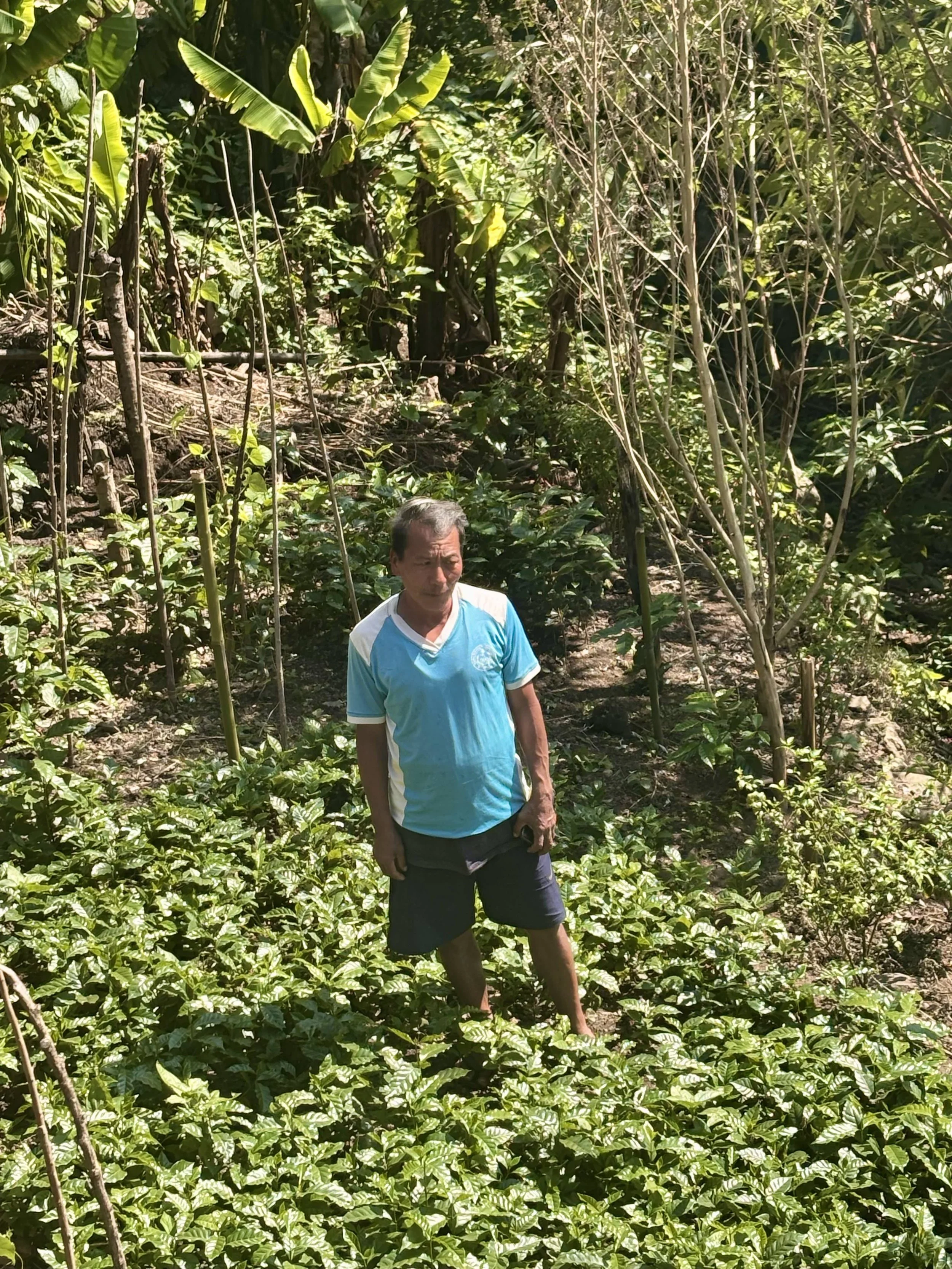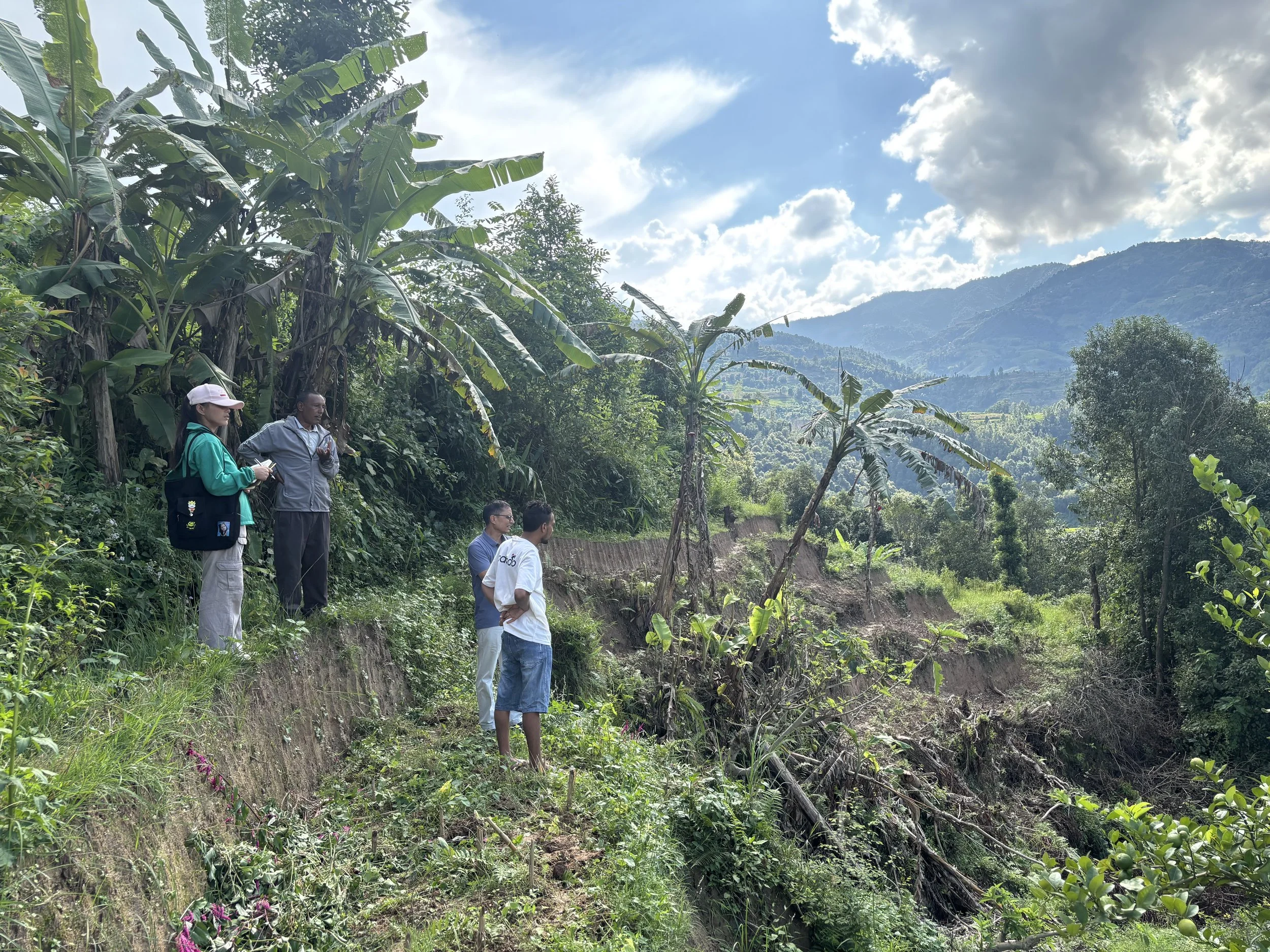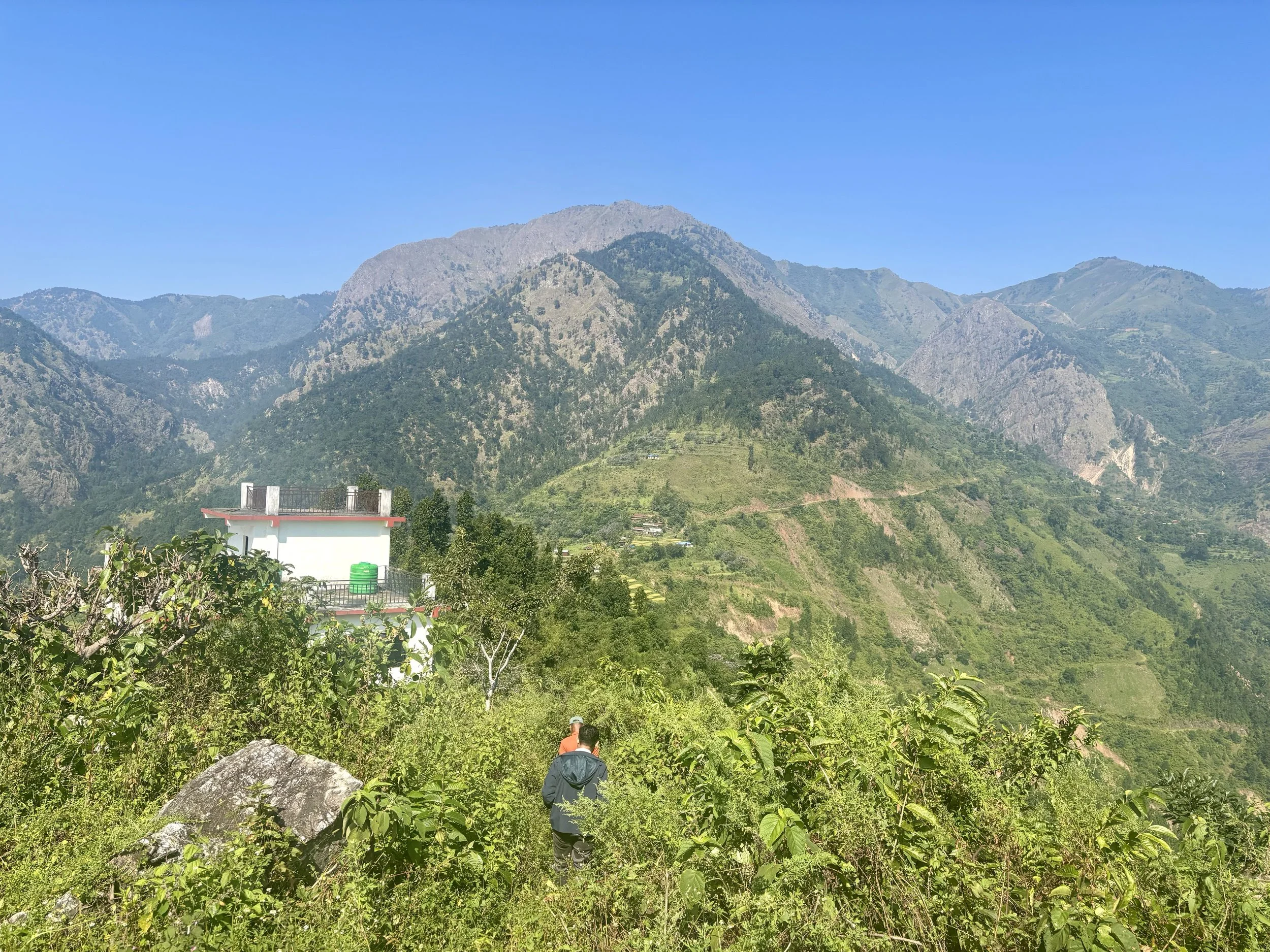Imagine a misty morning high in the mountains of eastern Nepal: the air is cool, dew clings to the leaves of young trees, and a small group of farmers huddles around a local trainer, comparing notes on how to plant saplings along the contours of a steep hillside. These trees do more than hold soil in place—they’re part of a carefully crafted agroforestry programme that nurtures not only the land, but also the lives of the people who depend on it.
This is the starting point for “Rooted Together,” a new research project led by MA student Lotty Hall. At its heart, the project delves into a simple but powerful idea: can planting trees and crops together help rural mountain communities adapt to a changing climate - and in the process improve their overall wellbeing?
Why Nepal’s Mountains Matter
Nepal’s high-altitude villages face some of the most visible and urgent effects of global warming. As glaciers retreat and rainfall patterns shift, farmers struggle with unpredictable seasons, water shortages and flash floods. In 2015, a devastating earthquake further shook traditional farming practices by altering water tables and damaging fields, as well as the general toll on communities following such a disaster. For communities already living on the edge, every change in weather is felt immediately - in their crops, their homes and their health.
Yet these same mountain villages are also hubs of resilience and innovation. The Glacier Trust and EcoHimal have been supporting community-led agroforestry initiatives for several years. Through small-scale nurseries, training sessions and community events, we encourage farmers to mix fruit and coffee trees, fodder shrubs and annual crops on the same plot of land. These interlinked systems help conserve water, protect against landslides, and, crucially, offer a variety of foods and income streams to provide communities with resilience to a changing and unpredictable climate.
Connecting Trees and Wellbeing
What “Rooted Together” aims to discover is how these agroforestry programmes do more than improve harvests. The research team will ask participants directly: How do these tree-and-crop systems affect your sense of security, health, and community spirit? Do they change how people feel about their future? By focusing on wellbeing - everything from mental peace of mind to social connections - the research takes a step beyond traditional climate studies.
To put it simply - it’s one thing to count how many trees are planted or how much crop is produced; it’s another to hear a farmer say, “Since we started layer farming and intercropping in our fields, I sleep easier because I know I have something to fall back on in heavy rain or drought.”
How the Research Will Work
Rather than staying behind a computer or crunching numbers in an office, this project will be conducted right alongside, and importantly with, the farmers themselves. Over the next few months, research will be carried out two clusters of villages in the Solukhumbu district: Thulung Dhudhakoshi and MapyaDhudhakoshi. With help from local trainers, the project will work with about twenty community members - farmers, local leaders and trainers who know the land intimately.
The methods are hands-on and participatory:
1. Storytelling Circles: Small focus groups and one-on-one chats, where participants share their experiences of planting, harvesting or even losing a crop. These conversations uncover how people judge success, cope with uncertainty and lean on the community when times are tough.
2. Community Mapping: Using simple drawings or walk together to map out where trees are planted, where water gathers and where children play. These maps illustrate not just geography but the connections between land, work and daily life.
3. “River of Life” Exercises: Participants sketch the ups and downs of their own farming journeys - times of drought, joyous harvest seasons or when a storm swept away a hillside terrace. By drawing these “life rivers,” farmers highlight turning points and coping strategies they’ve used.
4. Literature Review: Back in the UK, Lotty will comb through published studies on climate adaptation, agroforestry and wellbeing to see what lessons already exist. By comparing global research with local stories, she hopes to spot common threads - and fresh surprises.
What This Could Mean for the Future
By the end of the study, “Rooted Together” aims to offer more than a set of data tables: it will weave a tapestry of local voices, traditional knowledge and scientific insights. The goal is to show policymakers, development agencies and fellow researchers that supporting agroforestry in mountain areas can be a “triple win.” Trees help stabilise fragile slopes and diversify food; community engagement boosts mental health; and the very act of planting fosters a sense of hope for generations to come.
Ultimately, Lotty hopes this research will echo far beyond a handful of villages in Nepal. If agroforestry programmes can be shown to improve wellbeing - giving families a sense of control, stronger social ties, and better nutrition - then similar approaches might take root in other climate-vulnerable regions across Nepal and beyond.
As this research unfolds, we’ll invite you to follow along: to hear real voices from Nepal’s mountains, to learn how trees can transform more than just the land and perhaps to discover what lessons we might carry back home.




